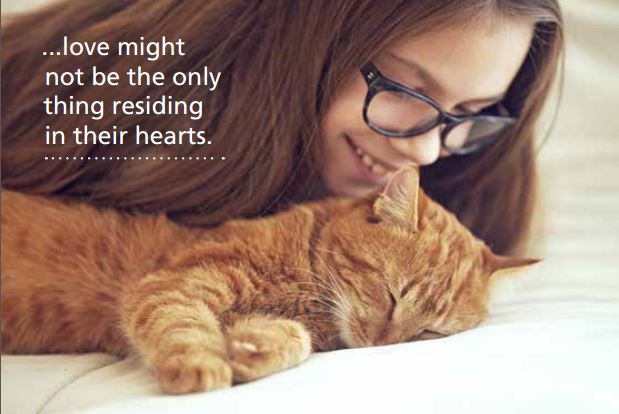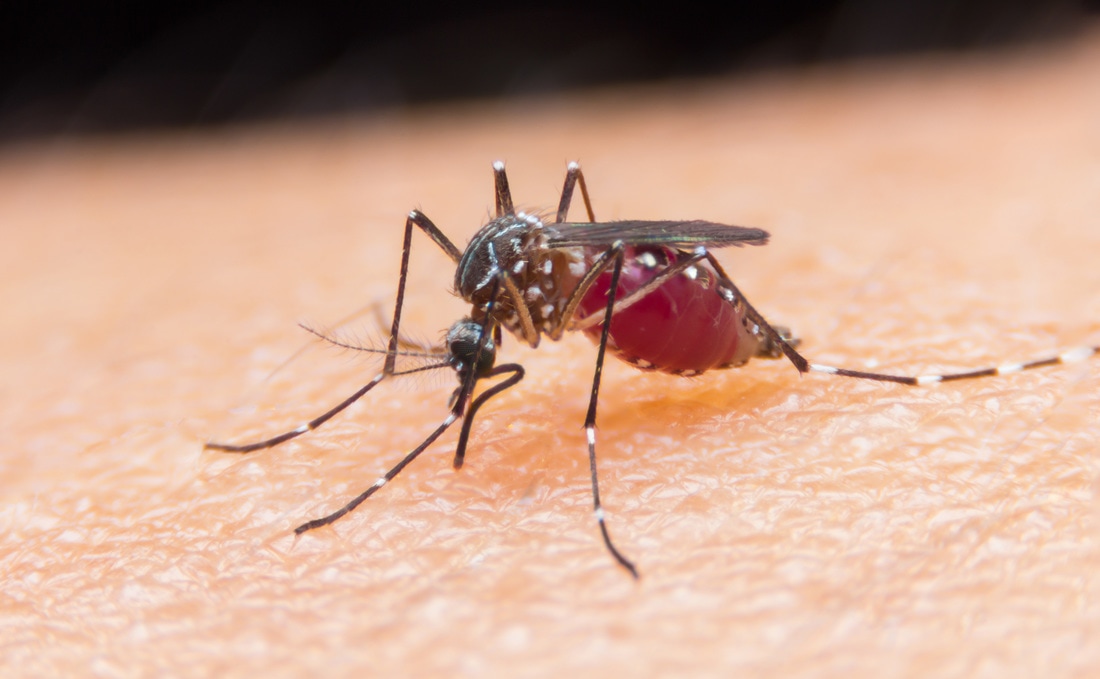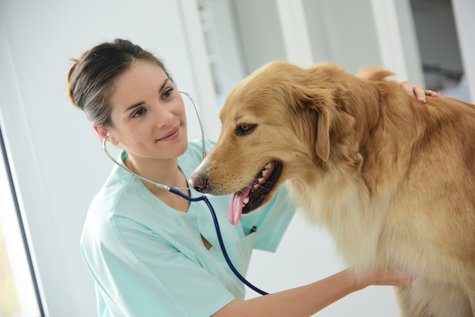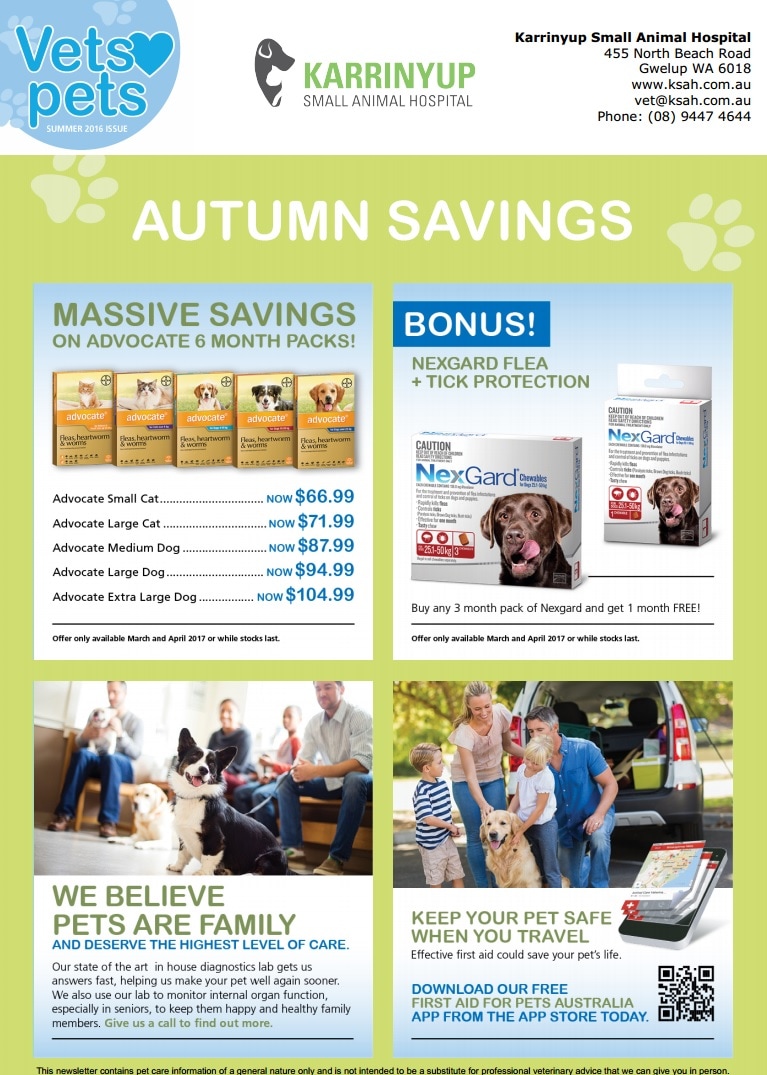Welcome to our Autumn edition of Vets Loves Pets!
After being all ‘loved up’ in February with Valentine’s Day we thought now is the perfect time to talk about hearts.
Karrinyup Small Animal Hospital
- Have you ever considered a rabbit as a pet? We look at how to take care of ‘Easter bunnies’.
- Did you know pets can suffer heart conditions just like humans?
- Easter is coming and sadly all those yummy chocolate eggs make it a peak time for pet poisonings to occur. We will help you keep your pets safe from treats that may be toxic.
- We also have some fabulous offers at the bottom!
Karrinyup Small Animal Hospital
Rabbits and other 'pocket pets' can bring lots of fun into your life! While dogs and cats are still the most common, pocket pets such as rabbits, guinea pigs, ferrets and rats can make great pets if you are a bit tight for space at home and long for a furry critter to share your life.
If an 'Easter Bunny' is for you, should you opt to have more than one it is important to have them desexed, as they quickly increase in numbers. Rabbits, like dogs and cats, love receiving affection from you and can be trained to use a litter tray indoors. Rabbits can however, 'hide' an illness so prompt veterinary care should be sought if you have any concerns.
If an 'Easter Bunny' is for you, should you opt to have more than one it is important to have them desexed, as they quickly increase in numbers. Rabbits, like dogs and cats, love receiving affection from you and can be trained to use a litter tray indoors. Rabbits can however, 'hide' an illness so prompt veterinary care should be sought if you have any concerns.
|
Our top tips for a healthy bunny this Easter:
|
Please book in to see us straightaway if your bunny:
|
How can you tell that your pet loves you?
Is it by their waggy tail or loud purr? We love to receive our pet’s affection but love might not be the only thing residing in their hearts
|
In Australia mosquitoes can transmit lots of nasty diseases and parasites - just one bite could put your pet at risk of deadly heartworm. Foxes are on the rise in urban areas and carry the disease, putting pets at risk. Dogs in particular are at risk as they can often carry the disease without showing symptoms until damage to the heart and blood vessels has occurred. Thankfully as vets we can help keep your furry loved ones safe. Prevention is definitely better than the cure when it comes to heartworm. Give us a call to see what the best option is for your pet |
Heartworm symptoms
Dogs
Cats
|
Take the healthy heart test today
Sharing isn't caring when it comes to chocolate
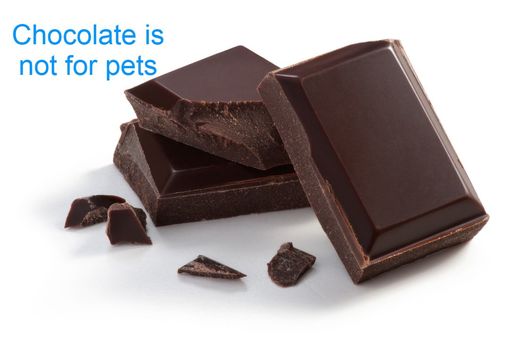
As vets we all too often see well-meaning owners or children share their treats with
pets with dire consequences. Chocolate even in small amounts can be fatal as pets can’t process the theobromine in chocolate like us humans can and toxic levels build up quickly.
Just as you would keep garden chemicals and medications out of reach of children you must also do the same for pets. Please ask us about safe treats for your pets and keepall chocolate including chocolate cake out of
harm’s way.
pets with dire consequences. Chocolate even in small amounts can be fatal as pets can’t process the theobromine in chocolate like us humans can and toxic levels build up quickly.
Just as you would keep garden chemicals and medications out of reach of children you must also do the same for pets. Please ask us about safe treats for your pets and keepall chocolate including chocolate cake out of
harm’s way.
Avoid feeding any of the following which are potentially toxic to pets:
• Chocolate (e.g. bars, cakes, choc milk)
• Onions and garlic
• Yeast dough, mouldy or spoiled foods
• Alcohol, cigarettes, tobacco
• Any human medications
• Macadamia nuts
‘Bone’ voyage! Travel with pets

It’s great to share holidays with pets and we have so many great pet friendly destinations to choose from. For a safe and happy holiday
for all the family we recommend you give us a call to check for any parasites specific to the area you are travelling to, e.g. paralysis
ticks. If you aren’t travelling soon keep our checklist on hand for when you plan your next trip.
If you need to use a kennel or cattery please don’t forget to book well in advance. Make sure you have up-to-date vaccinations with current certificates to avoid disappointment. Not sure? Give us a call.
for all the family we recommend you give us a call to check for any parasites specific to the area you are travelling to, e.g. paralysis
ticks. If you aren’t travelling soon keep our checklist on hand for when you plan your next trip.
If you need to use a kennel or cattery please don’t forget to book well in advance. Make sure you have up-to-date vaccinations with current certificates to avoid disappointment. Not sure? Give us a call.
Your safe travel checklist
- Parasite protection – paralysis ticks can be found in NSW, QLD and in parts of Victoria and heartworm prevention is a must. Call us to discuss.
- Regular medications for your pets e.g. arthritis or anti-seizure.
- Car seat covers and a car harness for dogs or carriers for cats.
- Collars and leads.
- Food and bowls (keep water on hand for drink breaks on long car journeys).
- Bedding, if not supplied.
- Toys and treats.
- Poo bags.
- Shampoo and towel.
- Download our free emergency app for iphone or android.



